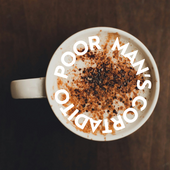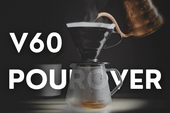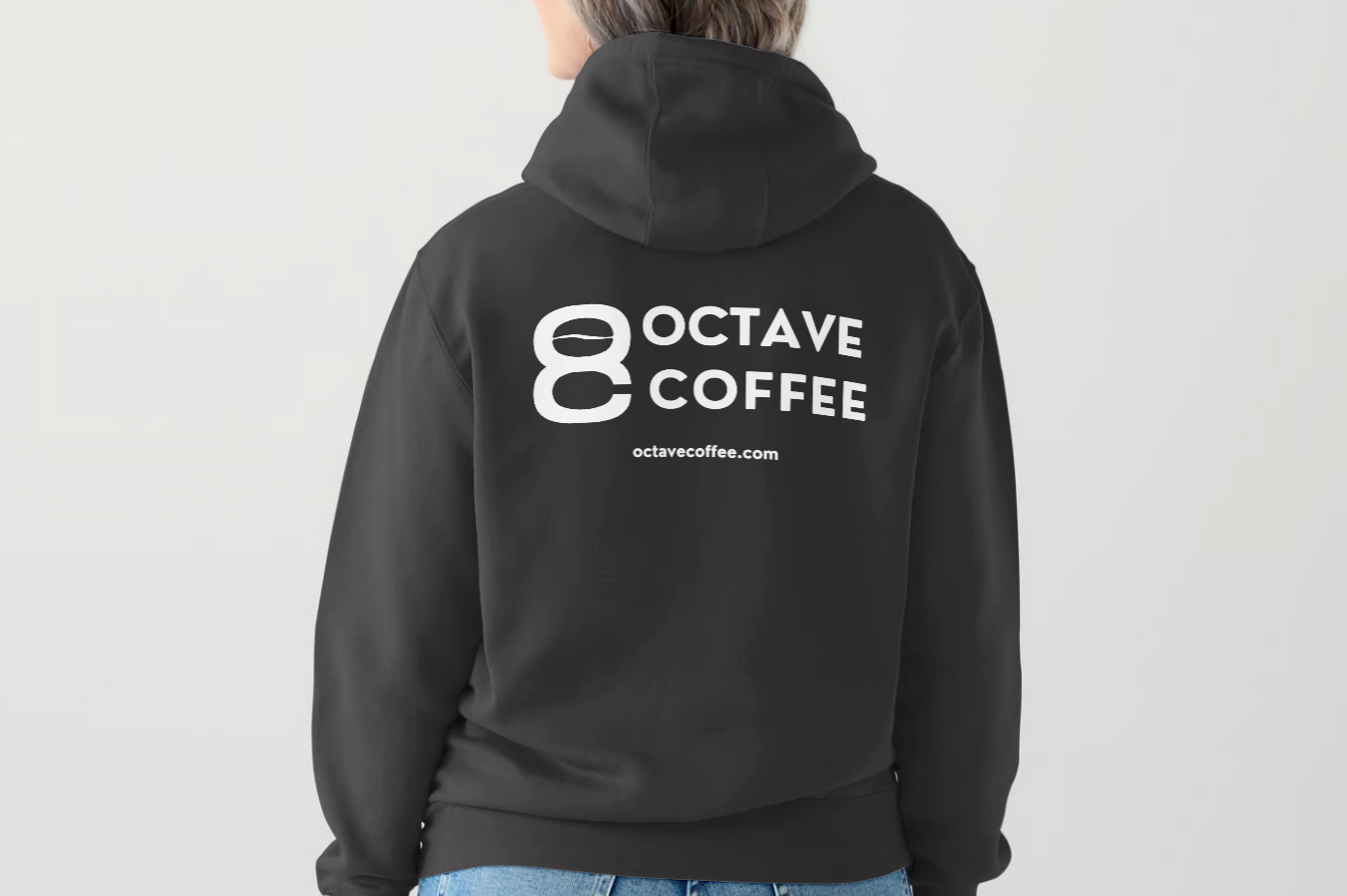
Sugarcane Decaf vs. Swiss Water: Choosing the Best Decaffeination Method
Compartir
What Is Decaffeination?
Decaffeination is the process of removing caffeine from coffee beans while keeping as much of the flavor intact as possible. Since caffeine is naturally present in coffee, removing it requires a careful method that doesn't strip away the oils and compounds that give coffee its unique taste.
There are several ways to decaffeinate coffee, but not all of them are created equal. Some methods use harsh chemicals, while others rely on natural processes that are gentler on the beans and the environment. The two most popular eco-friendly methods today are the Sugarcane Decaf process and the Swiss Water process.
At Octave Coffee, our Yacht Rock Sumatran MWP Decaf uses a swiss (mountain) water process that delivers exceptional flavor with notes of milk chocolate, cedar, and stone fruit.
The Sugarcane Decaf Process
The Sugarcane Decaf process, also known as the Ethyl Acetate (EA) process, uses a natural solvent derived from sugarcane to remove caffeine from coffee beans. Here's how it works:
- Steaming the Beans: The green coffee beans are steamed to open their pores, making it easier for the solvent to penetrate.
- Applying the Solvent: The beans are soaked in a solution containing ethyl acetate, which binds to the caffeine molecules.
- Removing the Caffeine: The solvent, along with the caffeine, is washed away.
- Drying the Beans: The beans are dried and prepared for roasting.
Because ethyl acetate is naturally occurring in fruits like bananas and sugarcane, this method is often marketed as "naturally decaffeinated." It's also faster and more cost-effective than some other methods, which is why it's widely used.
Learn more about the Sugarcane decaffeination process.
Pros of Sugarcane Decaf:
- Natural Solvent: Ethyl acetate is derived from natural sources, making it a more eco-friendly option compared to synthetic chemicals.
- Preserves Flavor: This method is known for retaining the coffee's original flavor profile better than some other processes.
- Cost-Effective: It's generally less expensive, which can make decaf coffee more affordable.
Cons of Sugarcane Decaf:
- Residual Solvent: While ethyl acetate is natural, some people prefer a completely chemical-free process.
- Caffeine Removal: It typically removes about 97% of the caffeine, which is effective but not as thorough as some other methods.
The Swiss Water Process
The Swiss Water process is a 100% chemical-free method that uses only water, temperature, and time to remove caffeine. Here's how it works:
- Soaking the Beans: Green coffee beans are soaked in hot water, which dissolves the caffeine along with the coffee's flavor compounds.
- Filtering the Water: The water is passed through a special carbon filter that captures the caffeine molecules but leaves the flavor compounds behind.
- Reusing the Water: The now-caffeine-free water, which is rich in flavor compounds, is used to soak a new batch of beans. This ensures that only caffeine is removed, not the flavor.
- Drying the Beans: The beans are dried and prepared for roasting.
This process is patented by the Swiss Water Decaffeinated Coffee Company and is widely regarded as one of the cleanest and most eco-friendly decaffeination methods available.
Pros of Swiss Water:
- 100% Chemical-Free: No solvents or chemicals are used, making it the purest option.
- High Caffeine Removal: It removes 99.9% of the caffeine, making it ideal for those who are highly sensitive to caffeine.
- Eco-Friendly: The process is sustainable and doesn't introduce any harmful substances into the environment.
Cons of Swiss Water:
- Cost: Because it's more labor-intensive, Swiss Water decaf tends to be more expensive.
- Flavor: While it preserves most of the flavor, some coffee enthusiasts feel it can slightly mute the coffee's complexity compared to other methods.
Sugarcane Decaf vs. Swiss Water: Which Is Better?
The answer depends on what matters most to you. Here's a quick comparison:
| Factor | Sugarcane Decaf | Swiss Water |
| Caffeine Removal | ~97% | 99.9% |
| Chemical-Free | No (uses natural solvent) | Yes |
| Flavor Preservation | Excellent | Very Good |
| Eco-Friendliness | Good | Excellent |
| Cost | Lower | Higher |
| Best For | Flavor lovers on a budget | Purists and caffeine-sensitive drinkers |
Choose Sugarcane Decaf If:
- You want a decaf coffee that tastes as close to regular coffee as possible.
- You're okay with a natural solvent being used in the process.
- You're looking for a more affordable option.
Choose Swiss Water If:
- You want a 100% chemical-free process.
- You're highly sensitive to caffeine and need the most thorough removal.
- You prioritize sustainability and eco-friendliness above all else.
Final Thoughts
Both the Sugarcane Decaf and Swiss Water processes are excellent choices for eco-conscious coffee lovers. The Sugarcane method is a great middle ground, offering natural decaffeination with excellent flavor retention at a lower cost. Meanwhile, the Swiss Water process is the gold standard for those who want a completely chemical-free, highly effective decaffeination method.
At the end of the day, the best choice comes down to your personal preferences and priorities. Whichever you choose, you can feel good knowing that both methods are far better for the environment, and your taste buds, than older, chemical-heavy processes.
Ready to experience premium decaf? Try our Yacht Rock Sumatran MWP Decaf and taste the difference that quality decaffeination makes.
Related Posts
-

Shake It Up: Octave Coffee's Shaken Espresso Recipe
Hey coffee folks—want to mix things up a bit? Check out our Octave Shaken Espresso Recipe. It’s got all the bold fl...
-

Embrace Italian Indulgence: A Guide to Perfect Affogato Shots
Index: Introduction Ingredients Instructions Brew Espresso the Italian Way Prepare Gelato with Italian Flair Cr...
-

Octave Coffee's Cinnamon Mocha Recipe: An Effortless Harmony of Flavors
As the Christmas season unfolds, treat yourself to the warmth of Octave Coffee with a simple yet delicious Cinnamon ...
-

Cortadito Recipe: A Brief History and Simple Guide
Originating in Cuban coffee culture, "cortadito" is a Spanish term that translates to "cut" in English. In the co...
-

Recipe Series: "Poor Man's Cortadito"
A Masterclass in No-Nonsense Coffee from Your Own Filter Basket So, you fancy yourself a coffee connoisseur but can't...
-

Recipe Series: Cozy Autumn Bliss - Homemade Pumpkin Spice Latte
Here in the American northeast, as the leaves start to change and the air turns crisp, there's no better way to embra...
-

How to Make Coffee Without a Coffee Maker: Simple Solutions from a Coffee Roaster
Table of Contents The Classic: Boiling Water & Coffee Grounds The Cowboy Method: Coffee Over an Open Fire Im...
-

The Ultimate Guide to Moka Pot Brewing: Mastering Grind Size, Roast Levels, and Brewing Steps
Moka Pot Brewing Guide Introduction Section 1: Unveiling the Moka Pot Magic 1.1 The Heart of the Moka Pot 1.2 The B...
-

V60 Pour-Over Coffee: A Simple, But Complete Guide
The V60 pour-over method is distinctive because it not only brings out nuanced flavors in coffee roasts, but also off...
-

How to Make Strong Coffee: A Guide By Octave Coffee
Brewing a cup of resilience becomes an art form with Octave Coffee's comprehensive guide on how to make strong coffe...
-

The Art of Vietnamese Coffee: Brewing with a Phin
I was just talking to a friend of mine from church this week and he was introducing me to the idea of Vietnamese Milk...













